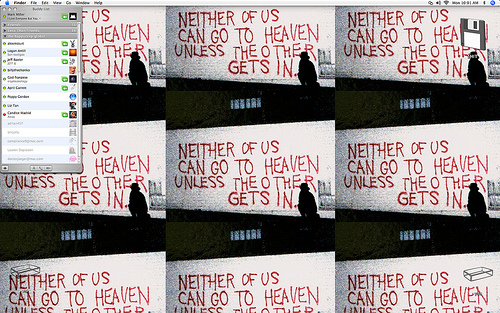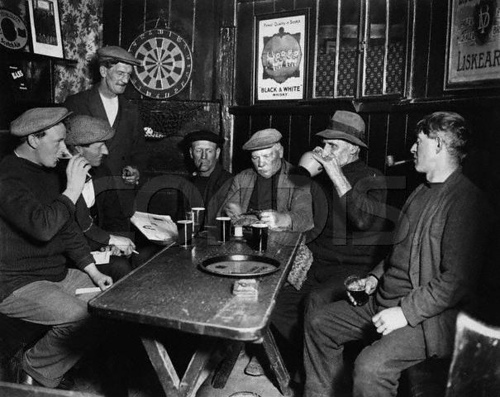I’ve been sitting here for three weeks attempting to write my grand re-debut in blogging, where I would declare my intention to overshare again like I haven’t since about 2002, note that a lot of anxiety that I was blaming on work deadlines actually seems to stem from not writing enough about things I care about, and delve into the limitations I’ve been accidentally sticking to regarding not scaring my family or offending my friends or embarrassing my partner, but how about I skip that for now since it has become a bit of an albatross, and just post something already?
Yes!
So I’ve been thinking about European ethnicities, whiteness, colonialism, and cultural appropriation, and what I need to do to make sense of being, apparently, of 100% Scottish ancestry.
This Scottishness is new-ish information because my dad was adopted. Until my dad (or my mum?) saw his adoption paperwork a couple of years ago I thought of myself as half Scottish, half mystery, and really, mostly as a generic white settler person. Lately it has occurred to me that if I can get more rooted in being a specifically Scottish-descended settler person, I might be able to use that to subvert whiteness a bit. I’m thinking that since whiteness works as a generic, supposedly neutral, supposedly non-racial racial quality, then knowing my ethnicity better might help me to be more aware of whiteness instead of taking it for granted, and also might help start conversations about race and privilege in everyday life. This is very early stages here. I get the impression a lot of people have thought about this, and I have a lot of reading and thinking to do. I don’t know what “understanding my Scottishness” would look like yet. I’m hesitant to suddenly care about kilts and druids partly because maybe they aren’t relevant to me, and partly because I associate, e.g., Celtic knotwork jewellery with New Agers and metal bands. More on that in a minute.
This is part of a bigger, backwards personal growth quest. Years ago I started reading about death and dying, and got interested in denial. There’s a lot of writing about denial in radical politics and anti-oppression work. Privilege and denial, collusion and denial, performance and pretending. Darkdaughta writes (or did write, when she was public) especially clear analyses of how personal denial perpetuates political oppression.
Trying to be thoroughly anti-oppressive, then, merges right up with trying to be an honest person, and both missions lead to sorting through my family dynamics, my parents’ families, and back and back. It’s useful to apply some historical context and political analysis to all of that. So again, I have a lot more reading and thinking and talking to do.
For starters, I’ve been hunting for general history about Scotland and colonialism. It is very easy to find writing about the oppression of Scotland by England, but, predictably, harder to find anti-colonial perspectives on Scottish settlers.
This caption was the first promising thing I found: Professor Geoff Palmer of Heriot-Watt University believes Scotland is still in denial over its role in British slavery. A signal! Involving the codeword, denial! I found some leads and put some books on hold at the library about Scotland and colonialism.
Towards the end of that article though, they are talking about other aspects of the Scottish diaspora, and the subject turns to cultural appropriation.
David Hesse, an “urban intellectual from Zurich”, who gave up a journalism career to study in Edinburgh, says: “You could call my field the imagined diaspora. I investigate highland games in Germany and Scottish clubs in eastern Europe. I look at people dressing up as Scots. Those people have no “real” Scottish ancestry but feel aesthetic connections. I think international fascinations with Scotland and Scottish-looking things are a phenomenon.”
Hesse sees imaginary Scottishness as an identity that is becoming increasingly popular in northern Europe. “It is a folk identity, but it is quite macho. It involves military music and martial games. It is also a generally white phenomenon.”
I laughed when I read that. Cultural appropriation has never inconvenienced me before, but I think this is what’s going on with my cautiousness towards anything celtic. It’s been taken over by metal bands and the scented candle crowd. I’m used to thinking about cultural appropriation from the other end, choosing not to wear dreadlocks or sari silks, not to get tattoos of asian calligraphy, not to use imaginary ancient aboriginal terms for my menstrual period. I think Operation: WTF Scottish Roots is working already. Things that made intellectual sense make a little more experiential sense.
So, hi again internet. It’s been years since I wrote regularly and I think I must still write like a twenty two year old, but I’m ok with just spitting things out until I get the hang of it.











